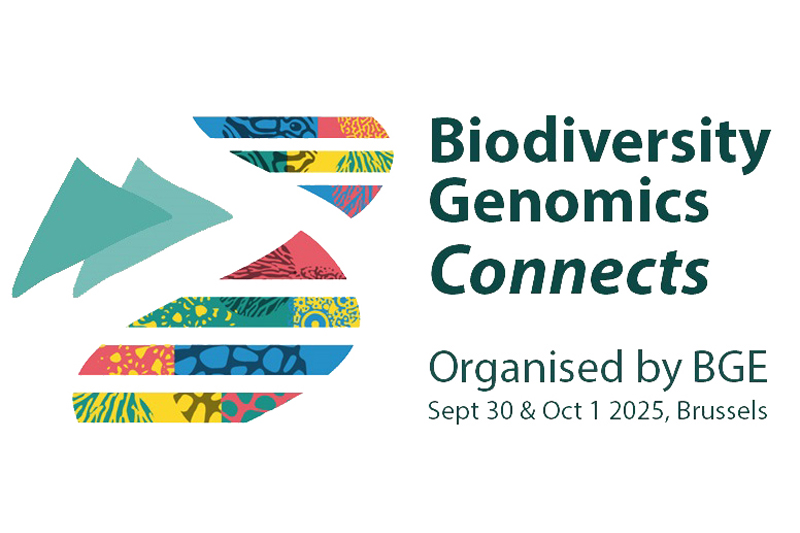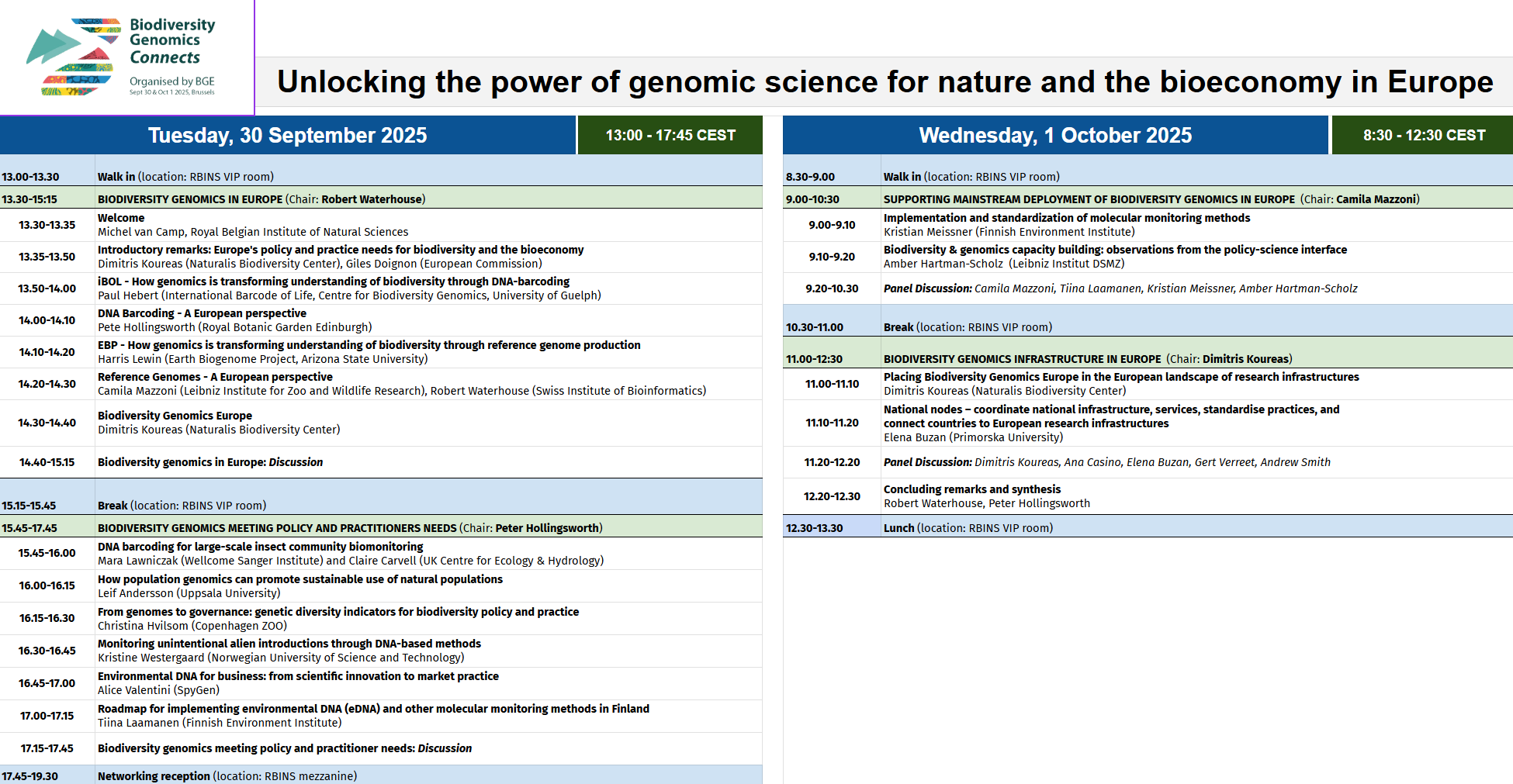27 August 2025
BGE Connects to take place next September 30th and October 1st in Brussels
Biodiversity Genomics Connects (Brussels, 30 Sept – 1 Oct, 2025) will be a two-day, two-part gathering to bring together researchers, innovators, policymakers, and stakeholders from across Europe to reflect on the state of the art and the path ahead for biodiversity genomics both in technical and policy-related terms.
1. SYMPOSIUM
Unlocking the power of genomic science for nature and the bioeconomy in Europe (Royal Belgian Institute of Natural Sciences, 30 Sept. – 1 Oct.)

The symposium is the distinctly scientific half of BGE Connects. It is focused on use of DNA methods and genomic science to support biomonitoring, conservation and utilisation of biodiversity – with a special emphasis on what is needed to facilitate mainstreaming and operationalisation of genomic methods for biodiversity across Europe. The meeting will consist of presentations on the state-of-the-art, and the practicalities of deployment, and then lead to discussion sessions aimed at prioritizing actions to guide future progress. Throughout the symposium, we aim to facilitate discussion between researchers, practitioners, policy leads, business, and civil society actors and the meeting also includes a networking reception.
SYMPOSIUM PROGRAMME
All talks in the symposium will be streamed live for the community, with the possibility of sending questions via chat.
Featured Speakers

Paul Hebert
“iBOL – How genomics is transforming understanding of biodiversity through DNA-barcoding”
Hebert is an evolutionary biologist specializing in DNA-based approaches to identify species and assess their diversity, dynamics, and interactions. He is a Tier 1 Canada Research Chair in Molecular Biodiversity and director of its Centre for Biodiversity Genomics.
Hebert has 30 years of experience in leading large research programs and has raised more than $120 million to build the facilities, infrastructure, and team needed to initiate and support an internationally recognized research program in biodiversity science. Since founding the International Barcode of Life Consortium in 2010, Hebert has been its scientific director.
An Officer in the Order of Canada and Fellow of its Royal Society, Hebert received the 2018 Heineken Prize for the Environment and the 2020 MIDORI Prize for Biodiversity.

Peter Hollingsworth
“DNA Barcoding – A European perspective”
Professor Peter Hollingsworth is Director of Science and Deputy Keeper at the Royal Botanic Garden Edinburgh. He leads a team of c120 scientists delivering collaborative science and conservation projects in >35 countries around the world. His own research focuses on understanding and conserving plant biodiversity. He has a particular interest in biodiversity genomics, and its application to biodiversity characterisation, biomonitoring, and conservation. Other interests include understanding disease threats to wild plant species and developing best-practice for species reintroductions. He is an Honorary Professor of the Chinese Academy of Sciences Kunming Institute of Botany, and a Visiting Professor of the University of Edinburgh, and Herriot Watt University, and a Fellow of the Royal Society of Edinburgh.

Harris Lewin
“EBP – How genomics is transforming understanding of biodiversity through reference genome production”
Harris Lewin serves as the Chair of the Earth BioGenome Project Working Group. He is the Robert and Rosabel Osborne Endowed Chair and Distinguished Professor of Evolution and Ecology at the University of California, Davis, where he also holds a joint appointment in the School of Veterinary Medicine and is a Fellow of the John Muir Institute for the Environment. From 2011-2016, he served as the UC Davis Vice Chancellor for Research. Prior to that he spent 27 years at the University of Illinois at Urbana-Champaign, where he held the E.W. and J.M. Gutgsell Endowed Professorship in Immunogenetics, with a primary appointment in the Department of Animal Sciences and was a member of the Center for Advanced Study. Lewin served as Director of the University of Illinois Biotechnology Center, Founding Director of the W.M. Keck Center for Comparative and Functional Genomics, and Founding Director of the Institute for Genomic Biology.
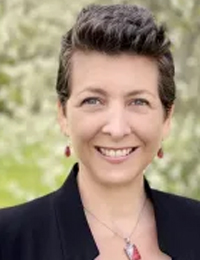
Camila Mazzoni
“Reference Genomes – a European perspective”
Camila Mazzoni holds a PhD in Cellular and Molecular Biology from the Oswaldo Cruz Foundation, in Rio de Janeiro, Brazil. Since 2010, she is a research group leader in Evolutionary and Conservation Genomics at the Leibniz Institute for Zoo and Wildlife Research (IZW), and co-leader of the Berlin Center for Genomics in Biodiversity Research (BeGenDiv), in Germany. Camila/Dr. Mazzoni was the founding chair of the European Reference Genome Atlas (ERGA) from 2021 until the end of 2023 and is the deputy director of the Biodiversity Genomics Europe (BGE) project, where she leads the development of reference genomes of European species. Outside of Europe, she co-leads the Genotropics Consortium, a Brazilian-German genomics initiative focusing on Neotropical species.

Robert Waterhouse
“Reference Genomes – a European perspective”
Robert Waterhouse is the Director of the Environmental Bioinformatics Group at the SIB Swiss Institute of Bioinformatics. His research has focused on comparative evolutionary genomics of arthropod biodiversity, with the group’s activities directed towards building capacities in coordinating biodata resources and developing data science tools and services that contribute to planetary preservation and restoration. As the chairperson of the European Reference Genome Atlas (ERGA, https://www.erga-biodiversity.eu/) he plays a leading role in the coordination of Europe-wide community efforts to scale up production and application of biodiversity genomics data and building data management infrastructures required for efficient processing and open data sharing.
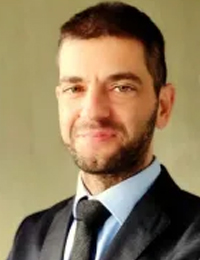
Dimitris Koureas
“Placing Biodiversity Genomics Europe in the European landscape of research infrastructures”
Dimitris Koureas specialises in digital innovation for research and research infrastructures. He currently serves as managing director for Digital and Chief Information Officer at Naturalis Biodiversity Center in the Netherlands and as the Executive Director of the Distributed System of Scientific Collections (DiSSCo) European Research Infrastructure and the Biodiversity Genomics Europe project. Dr. Koureas has extensive experience in biodiversity informatics. His career includes senior management roles in several European projects focused on data and infrastructures. He is co-chair of the FAIR Digital Object Forum and has served as chair of the Biodiversity Information Standards (TDWG) and as a board member of various international organisations. As an invited lecturer, he taught biodiversity data science and geosciences at various European universities.
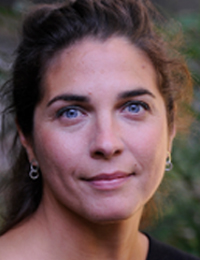
Mara Lawniczak
“DNA barcoding for large-scale insect community biomonitoring” (with Claire Carvell)
Dr Mara Lawniczak is an evolutionary geneticist and senior group leader at the Wellcome Sanger Institute. She leads the BIOSCAN UK project, she is a co-Investigator on the Darwin Tree of Life project, and she chairs the Earth BioGenome Project Sample Collection and Processing subcommittee. All areas of her research are aimed at gaining an evolutionary perspective on important organisms like pollinators and disease vectors while simultaneously creating valuable data resources for wider communities in conservation and in malaria control.

Claire Carvell
“DNA barcoding for large-scale insect community biomonitoring” (with Mara Lawniczak)
Dr Claire Carvell is an internationally renowned expert on pollinator ecology with over twenty years’ research and project management experience in the Biodiversity and Land Use science area at the UK Centre for Ecology & Hydrology. She uses a combination of field observations, experiments, molecular genetics, analyses of long-term datasets, community science and modelling approaches, interacting with a range of stakeholders to improve environmental policy and practice. Claire leads the UK Pollinator Monitoring Scheme [ukpoms.org.uk] (PoMS) a national citizen-led scheme conducting annual insect surveys since 2017. PoMS has collaborated with the Wellcome Sanger Institute using DNA barcoding to generate DNA-based metrics of insect community change over space and time, and improve reference databases for UK species.
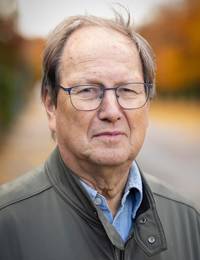
Leif Andersson
“How population genomics can promote sustainable use of natural populations”
Leif Andersson and his group have made ground-breaking studies on the relationship between genetic and phenotypic variation. He has been working on comparative genomics using domestic animals as models for phenotypic evolution. This has resulted in discoveries of genotype-phenotype relationships such as mutations affecting pigmentation, gaits in horses, comb morphology in chickens and muscle growth in pigs. He has also studied the genetic basis for domestication in rabbits, chickens and pigs. The research program has been expanded to natural populations as exemplified by studies of the evolution of Darwin’s finches and their beaks, a supergene controlling male mating strategies in the ruff and the genetic basis of ecological adaptation in Atlantic herring and other fish species. Leif Andersson is professor in Functional Genomics at Uppsala University and in Animal Genomics at Texas A&M University.
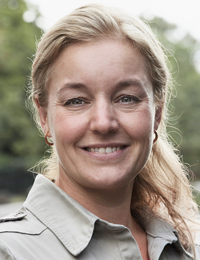
Christina Hvilsom
“From Genomes to Governance: Genetic Diversity Indicators for Biodiversity Policy and Practice”
Christina Hvilsom is a conservation geneticist working at the intersection of genomics, biodiversity, and policy. She has led pioneering initiatives in conservation genetics, developing innovative approaches that connect genomic science with species management and global biodiversity strategies. As coordinator of the EU Biodiversa+ project GINAMO and a member of the IUCN SSC Conservation Genetics Specialist Group, she contributes to advancing genetic indicators for the Convention on Biological Diversity. She also founded the EAZA Biobank, building a genetic resource infrastructure serving more than 450 zoos and aquaria. Her work focuses on ensuring that genetic diversity and genomic knowledge are central to conservation action and policy in Europe and beyond.
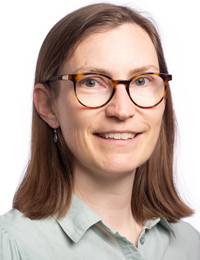
Kristine Westergaard
“Monitoring unintentional alien introductions through DNA-based methods”
Kristine Bakke Westergaard is an Associate Professor of Botany at the NTNU University Museum (Norway), working in the intersection of systematics, genomics, and ecology. She is a former PI (now Scientific Advisor) at the Norwegian Institute for Nature Research, where she led a national monitoring program focused on detecting alien contaminants and hitchhiker species introduced through imported horticultural plants to Norway. With the rapid advancement of DNA-based methods for species and biodiversity monitoring over the past decade, the project tested several approaches to enhance both the accuracy and cost-effectiveness of species identification—especially as traditional taxonomic expertise declines and morphological identification becomes increasingly difficult for some groups. Combining conventional morphological techniques with DNA metabarcoding and barcoding, the program has so far identified over 500 taxa of live invertebrates and approximately 250 taxa of germinated vascular plants as soil contaminants.
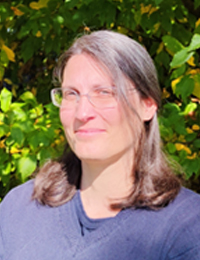
Alice Valentini
“Environmental DNA for Business: From Scientific Innovation to Market Practice”
Alice Valentini is co-founder and Head of the Research Division at SPYGEN, a company based in France that develops tools for biodiversity monitoring using environmental DNA (eDNA). She has a PhD in molecular ecology, and her work focuses on the development and implementation of molecular methods to detect species in various environments. She has contributed to research on both aquatic and terrestrial biodiversity monitoring and has co-authored numerous scientific publications on eDNA-based approaches. She has also participated in national and international projects aimed at improving the reliability and standardization of eDNA tools for conservation and ecological assessment. She coordinates SPYGEN’s research activities and contributes to partnerships with academic institutions and public agencies.
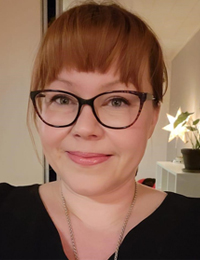
Tiina Laamanen
“Roadmap for implementing environmental DNA (eDNA) and other molecular monitoring methods in Finland”
Tiina Laamanen works as a Senior Researcher at the Finnish Environment Institute Syke, specializing in the development and implementation of eDNA and other molecular methods for environmental monitoring. She is Syke’s project manager and task leader in the Horizon Europe-funded eDNAqua-Plan project and serves as an eDNA expert in several national and international initiatives. Tiina leads the eDNA task group within the European Metrology Network for Pollution Monitoring (EMN Polmo) and coordinates Finland’s national eDNA network, which brings together over 130 researchers, experts, and industry representatives. She is also actively involved in the standardization of eDNA methodologies through the Finnish mirror group for environmental standardization.
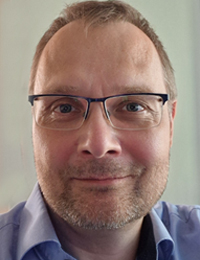
Kristian Meissner
“ Implementation and standardization of molecular monitoring methods”
Kristian Meissner has over 20 years of experience in environmental science and management, including 20 years in Finland’s environmental administration. His work focuses on improving aquatic biomonitoring for implementation of water legislation, novel methods like machine learning and eDNA, and strategic policy advice. He led Finland’s environmental monitoring strategy renewal at the request of the Ministry for the Environment and currently manages water management project portfolio funded by the Ministry for Agriculture and Forestry. With over 10 years of experience in standardization, he chairs two working groups on eDNA and DNA methods under CEN and ISO, and is a chair in iESTF, an inclusive international platform for molecular method standard seed document development.

Amber Hartman-Scholz
“Building skills and capacity in biodiversity genomics”
Dr. Amber Hartman Scholz is a microbiologist and Head of the Science Policy & Internationalization Department at the Leibniz Institute DSMZ in Braunschweig, Germany. She leads international science policy research on access and benefit sharing and digital sequence information. She co-founded both the DSI Scientific Network and German Nagoya Protocol Hub and spearheaded the DSMZ’s efforts to become a Registered Collection under the EU’s Nagoya Protocol regulation (511/2014). She held previous science policy posts in the US Federal and California state governments including at the White House Office of Science & Technology Policy and holds a PhD in Biology from Johns Hopkins University.
2. ROUNDTABLE
Biodiversity innovation: Enabling technology for nature and green growth (Permanent Representation of the Netherlands to the EU (Brussels), 1 Oct.)

Right after the technical sessions, Biodiversity Genomics Connects ‘s roundtable will explore policy-related questions such as: What are the most promising biodiversity genomic innovations for enhancing ecosystem resilience and climate adaptation? What infrastructure is needed to avoid bottlenecks, ensure continuity, interoperability, application, and open access to biodiversity genomic data? How can biodiversity genomic technologies accelerate green growth? Can Europe become a driving force for international collaboration to tackle systemic biodiversity challenges? Addressing these topics across the policy and scientific community will enable us to explore how Europe can better capitalise on the potential of biodiversity genomic innovations for nature and green growth. BGE will organise the policy roundtable in collaboration with Science Business.
The roundtable is a closed meeting. A report summarising the main conclusions of the discussion will be made available after the event.
This event will take place under the patronage of the European Parliament.
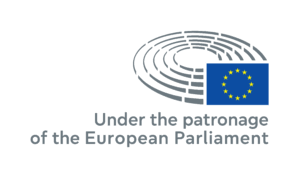
Roundtable Programme
14:00 Welcome
14:05 Introductory remarks by Costas Kadis, EU Commissioner for fisheries and oceans
14:25 Biodiversity genomics in Europe: Excellence, uptake and applications
— 15:10 Coffee break —
15:40 The innovation challenge: Turning biodiversity data into solutions
16:25 A roadmap for EU leadership in biodiversity genomics
16:55 Conclusions
17:00 End of the meeting
(All times are CEST and indicative)
FEATURED SPEAKERS
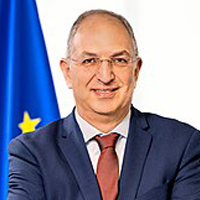
Costas Kadis
European Commissioner for Fisheries and Oceans
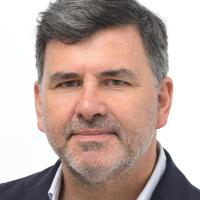
Nicolas Gonzalez
Member of the European Parliament for Spain
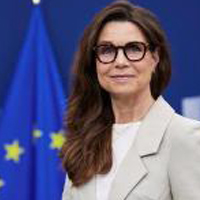
Pernille Weiss-Ehler
Member of Cabinet for Environment, Water Resilience and Competitive Circular Economy, European Commission
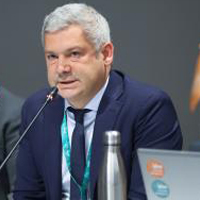
Gilles Doignon
Team Leader Biodiversity & Nature-Based Solutions, DG RTD, European Commission
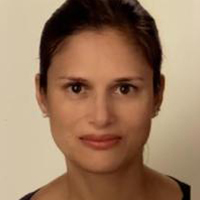
Eva Mayerhofer
Head of Environment Policy Unit Lead Biodiversity Specialist, European Investment Bank (EIB)
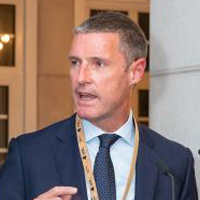
Richard Cronin
Water, Biodiversity and Housing Counsellor, Permanent Representation of Ireland to the EU
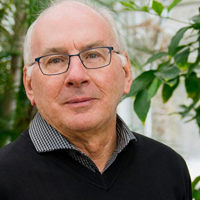
Paul Hebert
Chief Executive Officer, International Barcode of Life (iBOL)
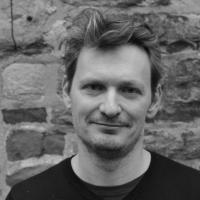
Ivan Davor Kulis
Head of Unit, Nature Conservation and Observations, Joint Research Centre, European Commission
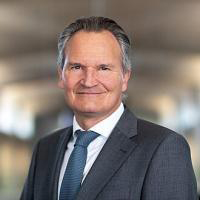
Robert-Jan Smits
President Emeritus Eindhoven University of Technology. Former Director-General for Research and Innovation (RTD) at the European Commission

Faiza Ouhlasen
Associate Director Sustainability, KPMG
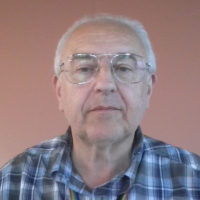
Gert Verreet
Chair of Working Group Environment, European Strategy Forum on Research Infrastructures (ESFRI)
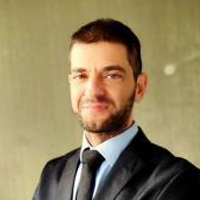
Dimitris Koureas
Chief Information Officer and Managing Director, Digital Strategy and Innovation, Naturalis Biodiversity Center
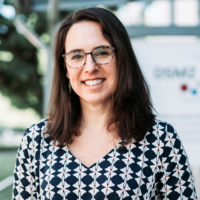
Amber Hartman Scholz
Head of Science Policy and Internationalisation, Leibniz Institut DSMZ
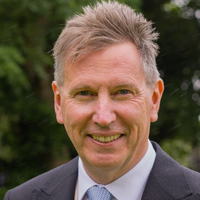
Pete Hollingsworth
Director of Science and Deputy Keeper, Royal Botanic Garden Edinburgh
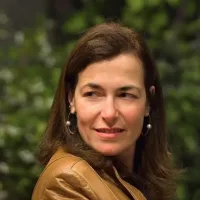
Ana Casino
Executive Director, Consortium of European Taxonomic Facilities
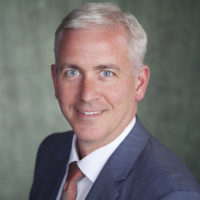
David Castle
Researcher in Residence. Office of the Chief Science Advisor, Government of Canada
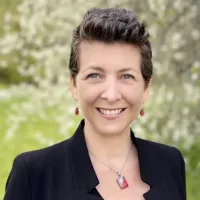
Camila Mazzoni
Research Group Lead. Leibniz Institute for Zoo and Wildlife Research
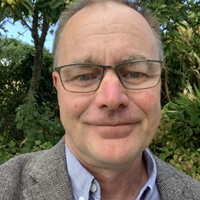
Andrew Nisbet
Deputy Director Monitoring, Chief Scientist’s Directorate, Nature England
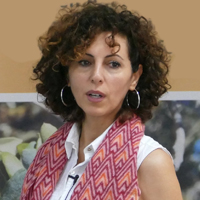
Magda Bou Dagher
Principal Scientist. Mediterranean Facility, European Forest Institute (EFI)

Henri Delanghe
Head of Unit, Research and Innovation, Directorate-General for Agriculture and Rural Development, European Commission

Marcel Beukeboom
General Director, Naturalis Biodiversity Center (NL), former Dutch Representative to the United Nations organizations for food and agriculture (Rome)
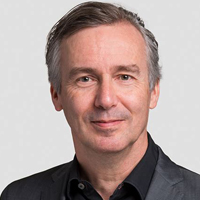
Pieter Hemels
Director, Futureproof
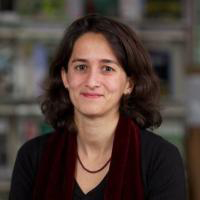
Elise Belle
Project Manager, WCMC Europe
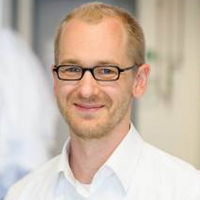
Florian Leese
Head of Aquatic Ecosystem Research, University of Duisburg-Essen
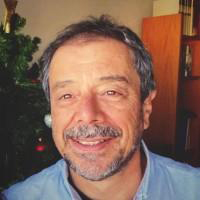
Pedro Beja
Associate Director of Operations, Fund Raising and Knowledge Transfer, BIOPOLIS, Deputy Director, CIBIO Research Centre, University of Porto
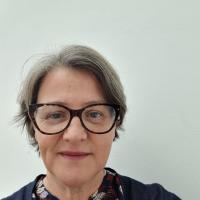
Caroline Pottier
Research and Innovation Team Leader, The Directorate-General for Environment, European Commission
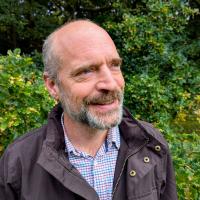
Alistair Duguid
Ecology Partnership and Development Unit Manager, Scottish Environment Protection Agency

